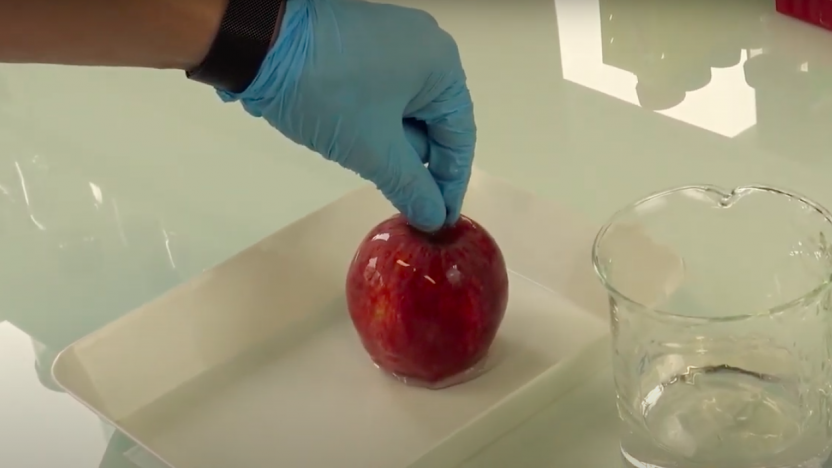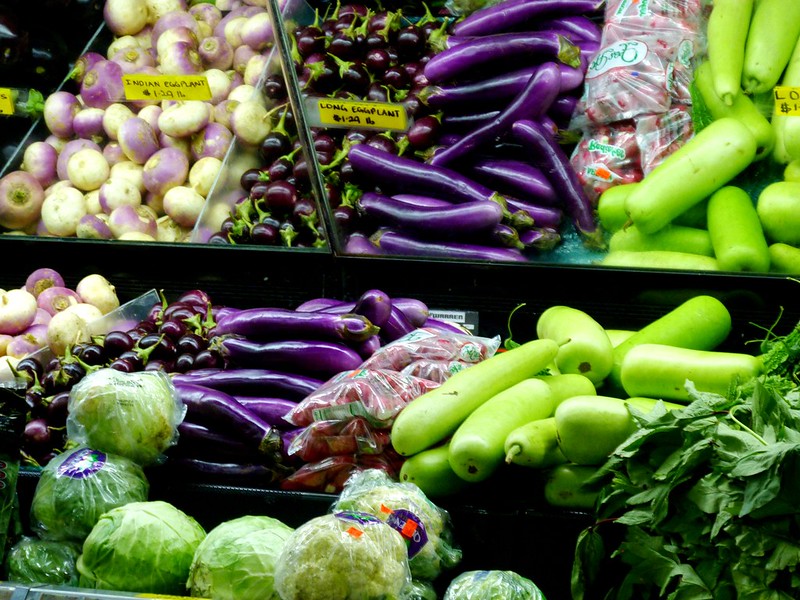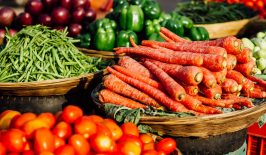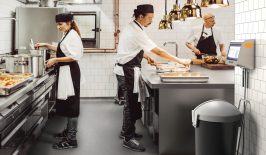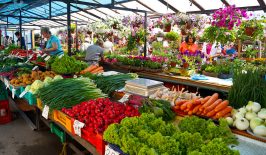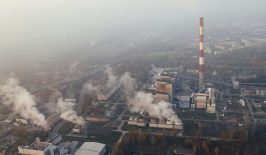A customer strolling around a supermarket produce section often encounters row upon row of largely identical fruit and vegetables, many of them sporting near perfect shape, colour and size. In reality, many supermarket fruit and vegetable aisles are not true representations of what agricultural produce looks like, but are instead highly curated showcases of only the produce deemed most likely to sell. Behind the scenes, tons of produce are rejected every day, often for failing to meet the largely aesthetic quality standards set by stores.
But now a French startup, Proteme, is looking for a way to give fruit and vegetables more of a fighting chance of making it to the shop floor. They have developed a specialised nano-thin protective coating designed to extend the life of fruit anf vegetables.
Proteme is relatively vague on what the protective film, dubbed Prosane, exactly consists of, but states it is a synergistic combination of biopolymer and natural components which is entirely edible, biodegradable and allergen-free. The team claim that Prosane functions as a ‘second skin’ for the fruit, and hinders the fruits’ natural reaction to the air – all without denaturing the food or detracting from its natural flavour. Although the protective film is invisible, odorless and tasteless, it can still be simply washed off with normal water if preferred. By preventing bacterial or microbial growth, as well as protecting fruit from physical damage, Proteme claims their coating solution extends produce shelf life by several weeks.
The startup is also dedicated to developing and utilising Prosane in a more ecological and circular agricultural sector, especially as a reaction to the use of traditional post-harvest phytosanitary products, such as waxes, hormones and disinfectant products. Additionally, Prosane could also help in reducing the amount of plastic used as packaging for fruit and vegetables. Ultimately, according to Proteme, a circular philosophy has been maintained through the development and production process, which it hopes to extend to distribution.
Currently, Proteme is working on developing a functional prototype and is aiming its product mostly towards apple and apricot producers, as these fruits have a long shelf-life and therefore act as a contamination risk to other produce. It is also largely targeting groups which share its approach to ecologically responsible intensive agriculture, such as market gardeners, arborists and agricultural cooperatives.
The Food Waste Crisis
The statistics involved in food loss and food waste are often staggering. According to FoodPrint.org, roughly 40 percent of America’s food goes to waste, with loss and waste occurring all across the production chain. Loss can occur for a variety of reasons, such as crops left in fields, produce being damaged in transportation or left for too long in storehouses. Once it reaches stores there’s also no guarantee it will make it to customers. For example, fruit or vegetables may be rejected if they do not reach supermarket standards in terms of colour or size. Indeed, it is often the case that wasteful practices are also seen as good business practices by supermarkets. For example, supermarket studies have shown customers are more likely to buy produce, such as a lettace, when it is in a pile of many, as opposed to on its own. This encourages overstocking which inevitably leads to unsold food and waste.
Some of this wasted food, around 10 to 33 percent, does re-enter the cycle, usually as animal feed. However, this is still a loss in terms of the amount of resources – such as land and water – that was used to produce the food in the first place.
In recent years, supermarkets have been increasing their commitments to cutting food waste. US giants, Walmart and Kruger have joined the 10x20x30 initiative which pledges members to meeting the UN’s Sustainable Development Goals by 2030. Others have introduced policies to simplify and clarify expiration and best used by dates, as well as sell ‘ugly’ produce at discount prices. Elsewhere, farmers are working with stores to improve guidance on quality standards and ensure healthy produce still makes it to supermarkets.
Ultimately, however, the majority of food waste occurs in the home. This is partly a result of supermarket practises, especially deals which encourage bulk buying, but is also a result of consumer behaviour. Overbuying, poor preparation and impulse purchases all contribute to food eventually being discarded in the home. Individuals may need to become more aware and critical of what and how much they are purchasing, and whether it is likely to be used before it spoils. Alternatively, consumers may wish to shop at specialist surplus stores, which are becoming increasingly available both online and on the high street.
